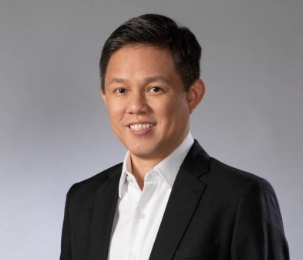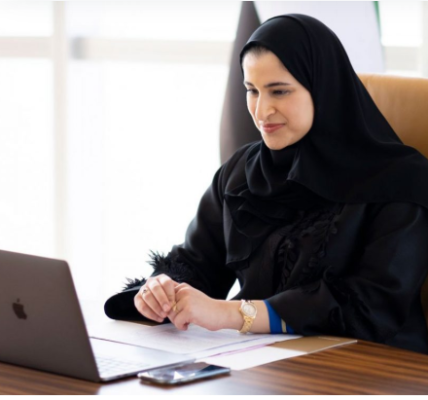Chan Chun Sing: A Visionary Leader in Singapore’s Political Landscape

Chan Chun Sing is a prominent Singaporean politician and former major-general, currently serving as the Minister for Education since May 2021. A key member of the ruling People’s Action Party (PAP), he has represented the Buona Vista division of Tanjong Pagar GRC in Parliament since 2011.
After a distinguished military career, where he rose to Major-General and served as Chief of Army, Chan transitioned to politics, holding significant ministerial roles including Minister for Trade and Industry. With a strong focus on education and public policy, he continues to shape Singapore’s future.
Early Life and Education
Chan Chun Sing was born on October 9, 1969, in Singapore. He attended St. Joseph’s Institution, a prestigious Catholic school, before pursuing higher education. He earned a Bachelor of Social Science (First Class Honours) in Economics from the National University of Singapore (NUS). Later, he received a Master of Business Administration (MBA) from Harvard Business School, equipping him with a strong academic foundation for his future roles in both the military and government. His early education laid the groundwork for his leadership and strategic thinking skills, which he would later apply throughout his career.
Chan Chun Sing: Personal Information
Full Name: Chan Chun Sing
Date of Birth: October 9, 1969
Nationality: Singaporean
Family: Chan Chun Sing is married and has children. Details about his family are kept relatively private.
Languages Spoken: English and Mandarin
Hobbies: In his spare time, he enjoys reading and engaging in activities that promote physical fitness.
Rise to Political Prominence
Chan Chun Sing’s political career began when he joined the People’s Action Party (PAP) and was elected as a Member of Parliament (MP) for the Tanjong Pagar GRC in the 2011 general elections. His rise within the party was rapid:
Ministerial Appointments:In 2015, he was appointed Minister in the Prime Minister’s Office and Second Minister for the Ministry of Defence. This role involved significant responsibilities, including overseeing national security matters.He later served as the Minister for Education, where he focused on enhancing educational policies and initiatives.
Cabinet Position:In 2020, Chan became the Minister for Trade and Industry, where he played a pivotal role in supporting businesses during the COVID-19 pandemic and promoting economic recovery.
Leadership Roles:Chan was named the Secretary-General of the PAP’s Youth Wing, which highlighted his commitment to engaging younger generations in politics and governance.He was also elected as the party’s First Assistant Secretary-General, positioning him as a key leader within the PAP.
Public Engagement:
Throughout his career, Chan has been known for his active engagement with the community, often participating in grassroots events and dialogues to understand the concerns of Singaporeans better.
Key Policies and Initiatives
han Chun Sing has been instrumental in shaping several key policies and initiatives during his political career. Here are some notable areas of focus:
- Education Reform:
- As Minister for Education, Chan advocated for a holistic approach to education that emphasizes character development alongside academic achievements. He introduced initiatives to reduce the emphasis on examinations and promote skills-based learning, encouraging creativity and critical thinking among students.
- Economic Resilience:
- In his role as Minister for Trade and Industry, Chan spearheaded efforts to support businesses during the COVID-19 pandemic. He implemented various economic relief measures, including financial aid packages, to help companies navigate the crisis and stimulate recovery.
- Digital Transformation:
- Chan has been a strong proponent of digitalization across various sectors. He advocated for initiatives aimed at helping businesses adopt digital technologies, thereby enhancing productivity and competitiveness in the global market.
- Workforce Development:
- He has emphasized the importance of upskilling and reskilling the workforce to meet the evolving needs of the economy. Chan has championed initiatives aimed at lifelong learning and skill development to ensure that Singaporeans remain employable in a rapidly changing job landscape.
- Youth Engagement:
- Chan has actively promoted youth engagement in politics and governance. His involvement in the PAP Youth Wing demonstrates his commitment to addressing the aspirations and concerns of younger generations, fostering a more inclusive political environment.
- Sustainability Initiatives:
- He has supported various sustainability initiatives aimed at promoting environmental responsibility and sustainable economic growth, aligning with Singapore’s broader goals for sustainable development.
Leadership and Governance
Chan Chun Sing’s leadership style and approach to governance have significantly shaped his political career. Here are some key aspects of his leadership and governance philosophy:
Collaborative Leadership:
Chan emphasizes teamwork and collaboration among government agencies, businesses, and the community. He believes in fostering a culture of partnership to tackle complex challenges effectively and achieve common goals.
Empathy and Engagement:
Known for his approachable demeanor, Chan prioritizes engaging with citizens and understanding their concerns. He believes in the importance of listening to diverse voices, especially those of the youth, to ensure that policies reflect the aspirations of all Singaporeans.
Crisis Management:
His experience in handling crises, particularly during the COVID-19 pandemic, showcased his ability to lead under pressure. Chan advocated for swift and decisive actions to protect public health and support the economy, demonstrating resilience and adaptability in governance.
Visionary Thinking:
Chan possesses a forward-looking vision for Singapore’s future. He actively promotes innovation and digital transformation, encouraging a shift towards a knowledge-based economy that prepares the nation for global competitiveness.
Meritocracy and Integrity:
A strong proponent of meritocracy, Chan believes in rewarding talent and hard work. He upholds high ethical standards in governance and encourages transparency and accountability within the public service.
Focus on Long-term Goals:
Chan’s governance approach emphasizes long-term strategic planning over short-term gains. He aims to create sustainable solutions that benefit future generations while addressing immediate concerns.
Challenges and Controversies
Despite his achievements, Chan Chun Sing has faced several challenges and controversies during his political career:
COVID-19 Response Criticism:
Chan was part of the government response to the COVID-19 pandemic, which drew both praise and criticism. Some citizens expressed frustration over the pace and clarity of communication regarding measures, such as circuit breakers and vaccination rollout. His handling of the situation has been scrutinized, particularly concerning support for vulnerable groups and businesses.
Cost of Living Concerns:
As Minister for Trade and Industry, Chan faced backlash over rising living costs and inflation in Singapore. Critics argued that the government’s policies were not adequately addressing the financial pressures faced by families, particularly during economic downturns. Chan has sought to reassure the public that the government is actively working to mitigate these challenges, but the concerns have persisted.
Public Communication:
Chan’s communication style has occasionally drawn mixed reactions. Some commentators have pointed out that his messages may lack emotional resonance, making it harder for the public to connect with government initiatives. This has led to calls for improved engagement strategies, especially among younger Singaporeans.
Political Competition:
Chan’s rise in politics has seen him navigate a competitive landscape within the ruling People’s Action Party (PAP) and the broader political arena. The emergence of alternative political parties has challenged the PAP’s dominance, compelling Chan and his colleagues to address issues related to political diversity and opposition engagement.
Perceptions of Elitism:
As a prominent figure in Singapore’s elite political landscape, Chan has occasionally been perceived as disconnected from the everyday experiences of average Singaporeans. Critics have labeled some policymakers, including Chan, as part of a political elite that may not fully grasp the struggles of the general populace, prompting discussions on the need for greater relatability in governance.
Economic Transition:
Chan’s focus on transforming Singapore’s economy to adapt to global changes, such as digitalization and green technology, has faced skepticism from some sectors of the workforce. Concerns about job displacement and the need for reskilling have been prevalent, requiring Chan to address these issues head-on to ensure a smooth transition.
Public Reception and Critique
Chan Chun Sing’s political career has garnered a mix of public reception and critique, reflecting both his leadership style and the policies he has championed:
General Approval:
Chan has generally received support for his dedication to public service and his pragmatic approach to governance. Many appreciate his background in education and his focus on social mobility, particularly his emphasis on enhancing skills and employment opportunities for Singaporeans.
Crisis Management:
His role in managing Singapore’s response to the COVID-19 pandemic has elicited a divided response. While some citizens commend his efforts and those of the government in swiftly implementing safety measures and support packages, others have expressed dissatisfaction with the communication and timeliness of certain policies, particularly regarding the handling of migrant workers and vulnerable communities.
Engagement with Youth:
As a member of the younger generation of leaders in the People’s Action Party (PAP), Chan is often seen as a bridge to younger Singaporeans. However, his ability to resonate with this demographic has been critiqued, with some suggesting that he and other leaders need to adopt more relatable communication styles and address the concerns of youth more directly, particularly regarding job security and housing affordability.
Policy Implementation:
Chan’s initiatives, particularly in the areas of trade, industry, and digital transformation, have received praise for their forward-thinking nature. However, there are concerns about the practical implications of these policies, such as the adequacy of support for workers transitioning to new industries. Critics argue that while the vision is commendable, the execution may sometimes fall short.
Public Image:
Chan has cultivated a public image of being approachable and down-to-earth, often engaging with citizens through various channels, including social media. However, there are moments where he has faced accusations of elitism or being out of touch, especially when discussing issues like cost of living or housing.
Political Challenges:
Chan’s rise has also placed him under the scrutiny of opposition parties, which have critiqued his policies and questioned the PAP’s long-standing governance. This has led to a vibrant political discourse, with opposition parties capitalizing on public sentiments around rising costs and social equity.
Overall, while Chan Chun Sing has made significant contributions to Singapore’s political landscape, public reception of his leadership continues to evolve, influenced by ongoing national challenges and the need for adaptive governance.
Personal Philosophy and Values
Chan Chun Sing’s personal philosophy emphasizes meritocracy, community engagement, resilience, and pragmatic governance. He believes in creating equal opportunities for all Singaporeans through education and skills development. His focus on social cohesion, integrity, and accountability reflects his commitment to fostering an inclusive and thriving society.
Conclusion
Chan Chun Sing’s political journey illustrates his dedication to Singapore’s progress and resilience. As a key figure in the government, he has consistently prioritized inclusive policies, economic growth, and social cohesion. His leadership reflects a commitment to addressing the challenges of a rapidly changing world, ensuring a brighter future for all Singaporeans. Through his values and initiatives, he aims to unite the nation and empower its citizens to thrive in an increasingly complex landscape.


































